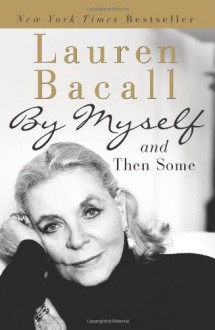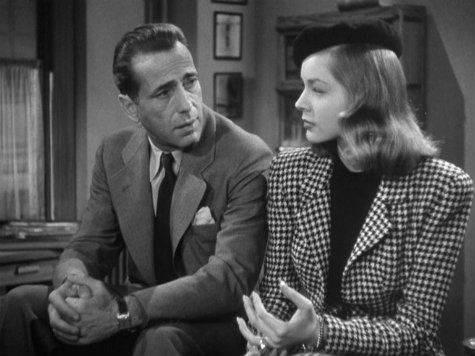Lauren Bacall by Myself -


One of my friends made fun of me for a little while yesterday because he saw me walking down the street laughing to myself. Fittingly, I was laughing to myself about the smartass comments I was planning to make to him about how rude it was that he didn’t offer to give me a ride. This book makes me think of that because of how easily I can entertain myself by thinking about a better comeback, a funnier joke, or a snappier ending to a story I already told. Reading this was sort of like reading everything Lauren Bacall wished she’d said to people her entire life.
It is not as entertaining to hear someone else’s would-have-saids as it is to hear my own.
The other issue I have with this book is that it falls into this ditch of crappy storytelling wherein she recounts the overall events that happened throughout entire years, but without any actual story. “Then we went to Paris, then we stayed at a hotel, then a lot of people got malaria, then my mom said something wise, then somebody went to the doctor.” I think every other sentence should have been edited out, and the remaining elaborated into actual stories with dialogue and descriptions. This was maybe the longest short book I've ever read. Mostly a slog.
I am giving this three stars, though, because there were two parts that I thought were really interesting, beautiful, and well told. The first was the courtship between her and Bogart, and the second was his death. I actually really loved the way she talked about Bogie’s death. It was incredibly sad and very beautiful, and at that point it seemed to unfold that the whole book had been leading up to that moment in her life. In a lot of ways, it seemed like her life became somewhat defined by mourning him.
I have had a few friends who strongly identify with Lauren Bacall, or at least her movie persona, and I have never felt that. The same with Audrey Hepburn. It seems nice, to me, for a girl to identify with women who are so elegant and graceful, but still with humor, but I am not one of them. Lena Dunham is definitely my girl. I guess I thought going into this memoir that despite her outward dissimilarity to me, there would be some kind of sympathy of spirit between Lauren Bacall and me. Whether that reflects well or badly on me, that was not the case.
The disconnect for me happened in that Bacall seemed really focused on affirming traditional values of finding a man to take care of her and devoting herself to her children, but also her career was obviously intensely important to her identity. While she was married to Bogie, according to Bacall, he was pretty clear that work should be second and he should be the priority. She was happy to agree to that. And after he died, she talked a lot about still having hope that she would find a man to take care of her. But, then, there were these times when someone would be dying, her kids would be failing at school, and she’d decide to go to Paris for a month to hang out. That kind of freaks me out because I feel like if you are really skilled as a caregiver and want to devote yourself to caring for kids and dudes, fine. But, if you aren’t, and you are skilled as an actress, don’t pretend you’re something else just to try to fit in. That bugs me. Play to your strengths.
I’m not questioning her love for her kids or husbands or lovers at all. I’m just saying I felt like my sense of who she was got all fogged up by this agenda she had to prove that she was somehow a nurturing person. And the fact that she was rarely there when something important happened to her family sort of belied the idea that she was devoted to nurturing. I have zero problem with her being skilled at other things than nurturing, and I think a person’s nurturing skills have very little to do with how much they love their family, but I got the sense that she had a problem with her skills lying elsewhere and wanted to sell herself as a nurturer. That was where I couldn’t identify with her.
It did seem like there were a couple of times where she could have been there for her family, but was at a party or in another country, or something. I couldn’t really get a good sense of it, though, because a lot of that seemed like she might have been too hard on herself and feeling some kind of survivor guilt for not being there every second of every family member’s life. Ultimately, I think it is a flaw in the book that I am distracted by not having a sense of whether she was there for her family or mostly at parties. It made me kind of curious what they would have said. What I mean is that I appreciate it when people are accurate about their own skills. I don't mean complaining, like, "I'm ugly" or "Everybody hates me" because those are not possible, and are only feelings, not accurate descriptions. I mean, like, "I am good at cooking and bad at gardening." I feel like those things build who a character is, even if the character is as complex as a real human, and I didn't get a solid sense of Bacall as a character.
I guess, Bacall's appearance and presentation is harsh and independent, but she describes herself as being soft and dependent. I am the opposite of that. I look like a helpless child, but really more of a jerk.
But, she did fall in love with a lot of married men, and I can identify with that. People are always getting married.


 Log in with Facebook
Log in with Facebook 










